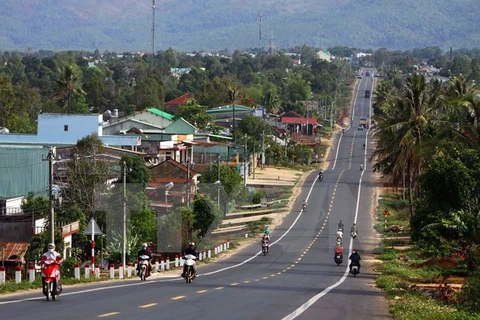Hanoi (VNA) – Prime Minister Nguyen Tan Dung on December 5 issued an order to open to traffic the Hanoi-Hai Phong highway, the most modern of its kind in Vietnam.
The PM hailed seven-year efforts made by the investor, contractors, engineers, workers, and financial organisations to complete the project amid the country’s economic difficulties.
Together with the Hanoi-Lao Cai, Hanoi-Thai Nguyen expressways, the road will help enhance connectivity and increase the efficiency of the key northern economic region, serving as a driving force to boost the socio-economic development and ensure defence security in the region, he stated.
He asked the Ministry of Transport to exert more efforts to fulfil the target of 2,000km of highways across the nation by 2020. Currently, 710km of highways have been built.
Vietnam will create all favourable conditions for foreign investors to invest in infrastructure development in Vietnam, he added.
The Hanoi-Hai Phong highway, commenced on May 19, 2008, begins at the Belt Road 3 in the capital city, traverses Hung Yen and Hai Duong provinces, and ends at Dinh Vu port of Hai Phong.
Invested by the Vietnam Infrastructure Development and Finance Investment JSC, the road is built at a total cost of nearly 45.5 trillion VND (2 billion USD) under the Built-Operate-Transfer contract.
It has a total length of 105.8 kilometres, and a width of 33 metres with 6 lanes and an intended speed of 120 kilometres per hour. It has 54 bridges in total.-VNA






















